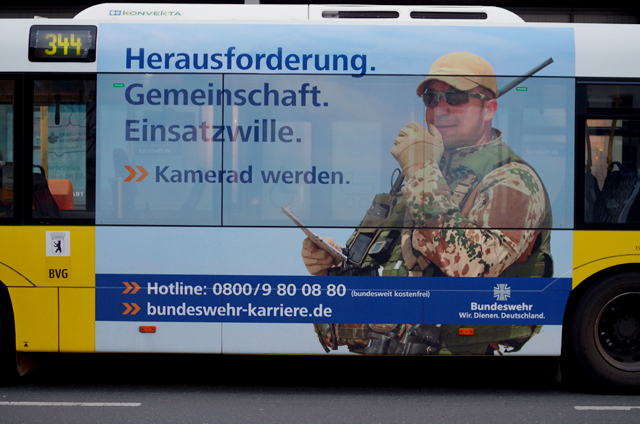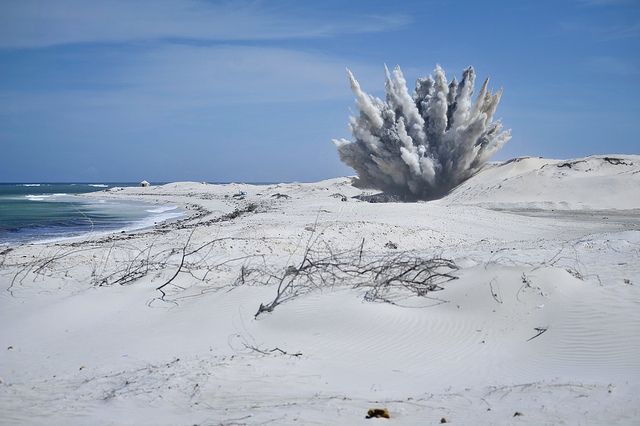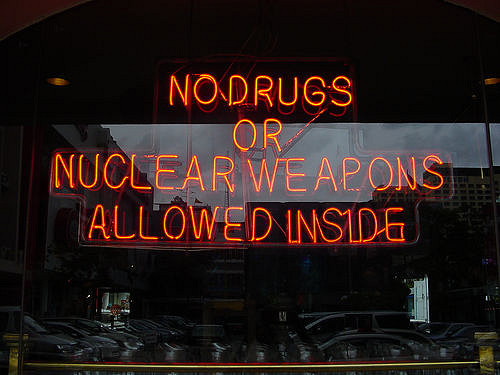It’s hard to believe that the American armed forces were once thought of as glorified vocational schools for men and women who had either finished high school or were finished with high school. Yet from the end of the Vietnam War until 9/11, the vast majority of volunteers could look forward to years of educational tedium, rather than armed struggle. This remains the case in Germany.
As the Cold War developed in the years following the Third Reich’s demise, the United States was faced with a quandary. The prospect of permitting Bonn to build up its military strength so soon after it was used against the Allies made many people anxious. Yet in light of the massive mobilization underway in the Eastern Bloc, forsaking German manpower and know-how seemed foolish. The solution was to encourage the development of a Bundeswehr that was both a model of capability and incapable of making itself truly useful.
That this endeavor succeeded owes a great deal to the pacifist sentiments of the former exiles and outcasts who spearheaded West Germany’s reconstruction, as well as their supporters in the nation’s educational system. As impressive as it was politically to build this weapon with the safety welded on, however, there was always something existentially perverse about it in practice.
Armies, like guns, are meant to be used. Indeed, they practically demand to be deployed, rushing in to fill up every vacuum left behind when diplomacy has failed. The longer the Bundeswehr has gone without being fully devoted to anything beyond self-maintenance, the more one has the impression that its pent-up need for meaningful engagement has reached alarming levels.
Surely that’s why it has been sharply reduced in size in the years following reunification, despite existing in a destabilized, multi-lateral world that presents many opportunities for military action that will remind no one of Germany’s twentieth-century aggression. The 2011 elimination of traditional conscription only reinforces this point. By making the Bundeswehr so lean, Berlin has scaled back the temptation to deploy it. Or at least that’s how it seems from afar.

Given what a huge drain on the Federal budget the War on Terror has been in the United States, it would be plausible to argue that Germany’s reticence to put the Macht back in its Wehr derives from the same fiscal prudence that makes its citizens keep so much more of their money in savings than other Europeans do. After all, there’s no doubt that Germany’s ascendancy as a financial power has gone hand in hand with the downsizing of its military.
What this explanation misses, however, is the emotional component to this reluctance to engage. Both Germans themselves and the neighboring nations that can’t quite put away their history books seem to think that once their armed forces finally do cross the line from a theoretical force into a practical tool of “politics by other means”, it won’t be possible to restrain them from doing so over and over.
The buzz words on this recruiting advertisement for the Bundeswehr’s all-volunteer incarnation inadvertently tell the story of these fears. Together they comprise an awkward list: “Challenge. Community. The Will to Deploy. Becoming a Comrade.” It’s not clear what the challenge consists of or how it bears on the experience of a community in which comradeship is paramount. And what does any of that have to do with this “will to deploy.”
The last term perfectly captures the paradox at the heart of the German armed forces. They are supposed to cultivate a willingness to deploy without actually doing so, to be perpetually ready for an engagement that is always already deferred. Perhaps that is the challenge of the community it constitutes, to sustain a bond in the absence of the external opposition that other militaries rally around.
It’s worth asking, though, whether the Bundeswehr’s exceptionalism has outlived its function. The situation in the Ukraine right now is not one that the United States is prepared to tackle on its own. And neither Great Britain or France have the level of investment, either financial or psychological, to lead a campaign on behalf of the European Union. If a counterweight to Russia’s desperate neo-imperialism is to be effective, it will need Germany to be in the vanguard, its armed forces actively deployed instead of potentially deployable.
Commentary by Charlie Bertsch. Photographs courtesy of Joel Schalit.





